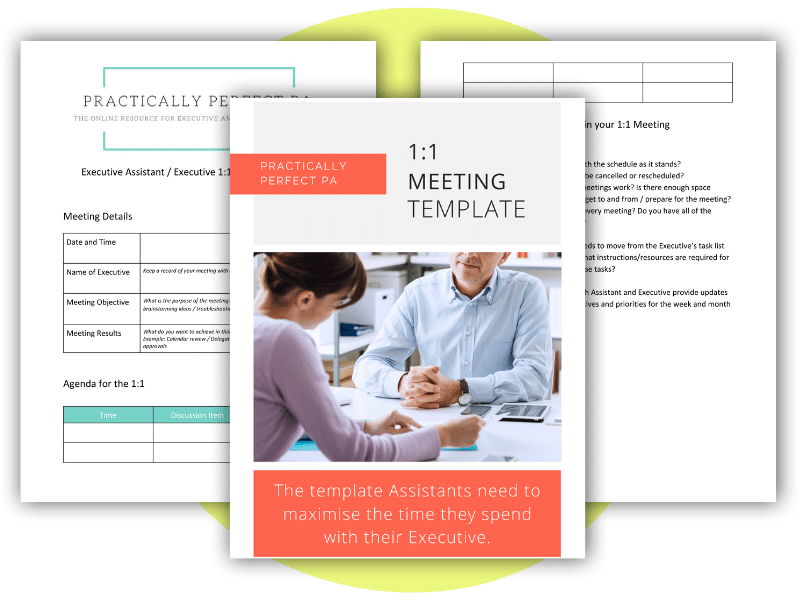How can you be more accountable at work?
A huge challenge we face as assistants is moving from a position of support staff, where we take on any task assigned to us, to a more proactive position where we source our work, take on projects that we think will make a difference and make decisions based on the best interests of the business and our Executives.
This is a big leap for many Assistants, but we must take it to move the industry forward, so let’s start by looking at how you can be more accountable at work.
This is a big question! What do I mean by being more accountable, and why is it essential for assistants? For me, being accountable means taking control of your success and managing your workload, career and relationship with your Executive and colleagues. It means making decisions and taking ownership of the results.
We need to be accountable for our work, but for some reason, this is something that we struggle with.
I think it harks back to the age-old problem that we see ourselves as ‘just the assistant’ and don’t have the authority to question things and make decisions. We are given work to complete rather than put forward our suggestions. The term ‘support staff’ doesn’t help either because it suggests that we are there only to offer support, do the things asked of us and not much more.
This, my friends, is a load of rubbish! The role is changing, there are more opportunities for assistants than ever before, and we must be accountable for our own success.
What are the benefits of accountability?
The benefits are enormous when you take control of your workload, accept accountability for your actions, and take real responsibility for what you are tasked with. Here are just a few differences you will find in your behaviour once you start to think about accountability within your role:
- You will set yourself goals
- You will recognise that you are the expert at what you do
- You will recognise the power that you hold within your organisation
So, accountability – it’s a good thing, right?! Yup, I’m probably talking to the converted here. But the question is. Where do you start? Let’s have a look at how assistants can specifically be more accountable within the role:
What tasks do you have control over?
This is the first step to being more accountable. Have a look at all of the day-to-day tasks that are assigned to you. I bet there are loads. These are the tasks that you should have complete control over. They may be minor things like picking up the post every morning and larger tasks like managing your Executive’s schedule. For every task you have complete control over, think to yourself: How can I make every task successful? What can I do to ensure the process attached to each task runs smoothly and is working well? Please list these tasks and spend some time making them more efficient. You are accountable for these tasks and should take responsibility for their success.
Be results-focused
Being more accountable for your actions will lead to you being much more results-focused, making you more valuable to your organisation. With everything you do, think to yourself, what are the goals here? What are my objectives, what do I want to achieve, and what are the valuable outcomes? This level of critical thinking benefits your business because you constantly look for a return on investment in everything you do. If you spend ages on a task that is not business-critical or adds value, you can adjust the process and make it more effective because you are accountable for that task.
What areas can you influence?
Next up. What areas can you influence? You may not have direct responsibility for a whole load of tasks, but you do control them. Again, if it helps, make a list. A task that springs to mind is working with suppliers. You are not the person who necessarily signs the contracts for new suppliers, but you probably use them more than most, so again, take some responsibility for this relationship. Let your Executive know if a supplier isn’t quite working. If they are great, let other people in your organisation see them so they can benefit too.
Be honest about what you are doing and where you are with tasks.
Being accountable for your work doesn’t just mean that you control the good stuff. It also means you are honest when things aren’t quite working. If you decide to take more ownership of your work, you’ll have to put your hand up when you might fall behind with deadlines or struggle with something. This isn’t necessarily a bad thing. If you are working on projects that push and challenge you, there will be times you need to seek advice from your Executive (just like any other staff member).
Remember, you have to be accountable for all of your work.
I remember one time I was working on a brilliant, company-wide project. I was excited about it and spent a lot of time on the details. My Executive called me into her office one afternoon for a quick catch-up. She told me that she was proud that I was working on this big project but had noticed that I wasn’t entirely up to speed with my daily tasks, and I’d missed a few things I had always done for her. She was right. Yup, I was having a great time working on this new task, but I had to take account of all of the other stuff I had to do. I let the ball drop, but being accountable meant I had to put my hands up, apologise and say it wouldn’t happen again. Being responsible for your mistake sucks, but it is as essential as being accountable for your successes!
What training do you need to be in total control of your work?
Another aspect of being accountable and in control of your work is the realisation that you might need help to make each task successful. This is why you must ask for training; your organisation takes your request seriously. When you are accountable, you know that other people within your organisation depend on the results of your work, so without training, how can you perform to the best of your abilities?
Last but not least. Accountability has to begin with you. It is an essential competency for assistants, and it will only become more valued as our industry moves from a support role into a business-critical one.
Putting these tips into practice
With every adjustment to your work style, you should speak to your Executive about implementing these changes. Accountability is a brilliant competency as part of your career development plan, and you could flesh this out into specific SMART objectives.
In the digital transformation and automation age, finding time to equip ourselves with the skills we need is essential for staying competitive in the workplace.
As Assistants, this means embracing a proactive approach and taking on tasks that can impact your executives and organization. Taking ownership of your work can be daunting, but remember you are not alone — plenty of resources can help you develop your skills as an Assistant.
The Assistant Mindset online course is just such a resource and provides invaluable insight into taking charge and taking action. So don’t wait any longer; start feeling more accountable at work today by enrolling in this helpful course. Realizing the potential within yourself to create change is within reach, so let’s go and make it happen!





